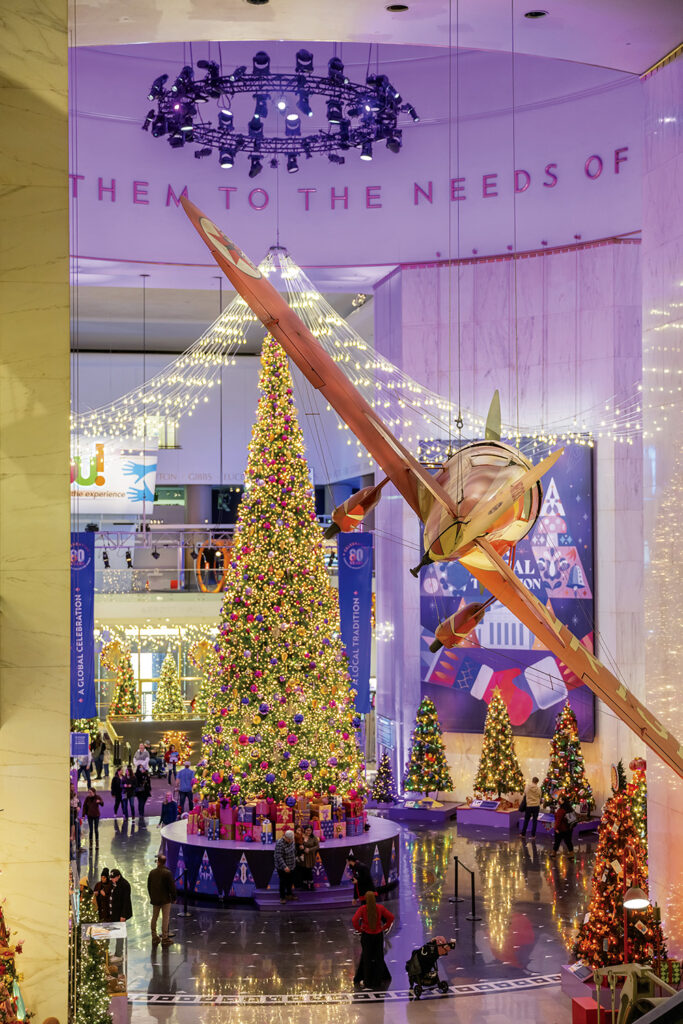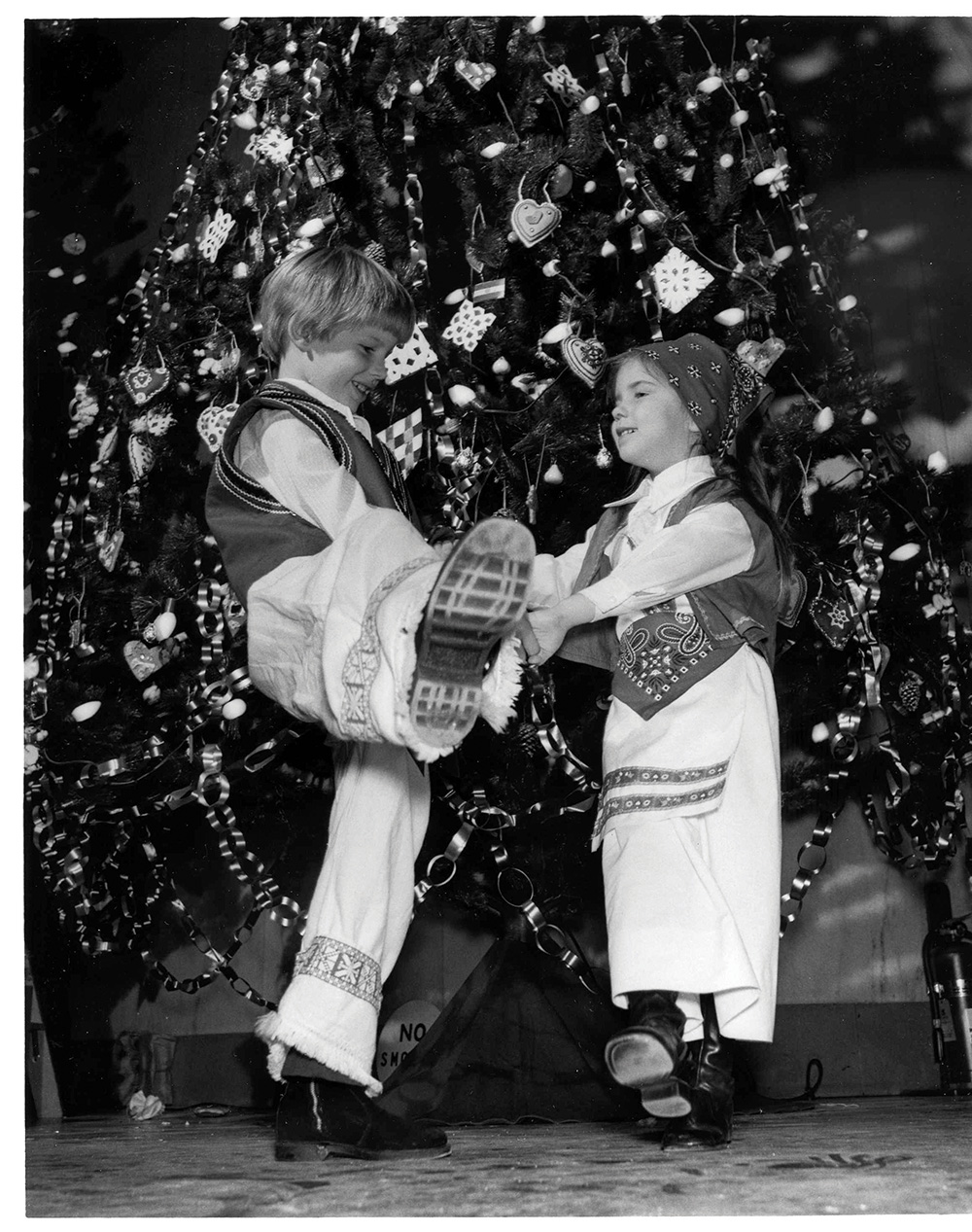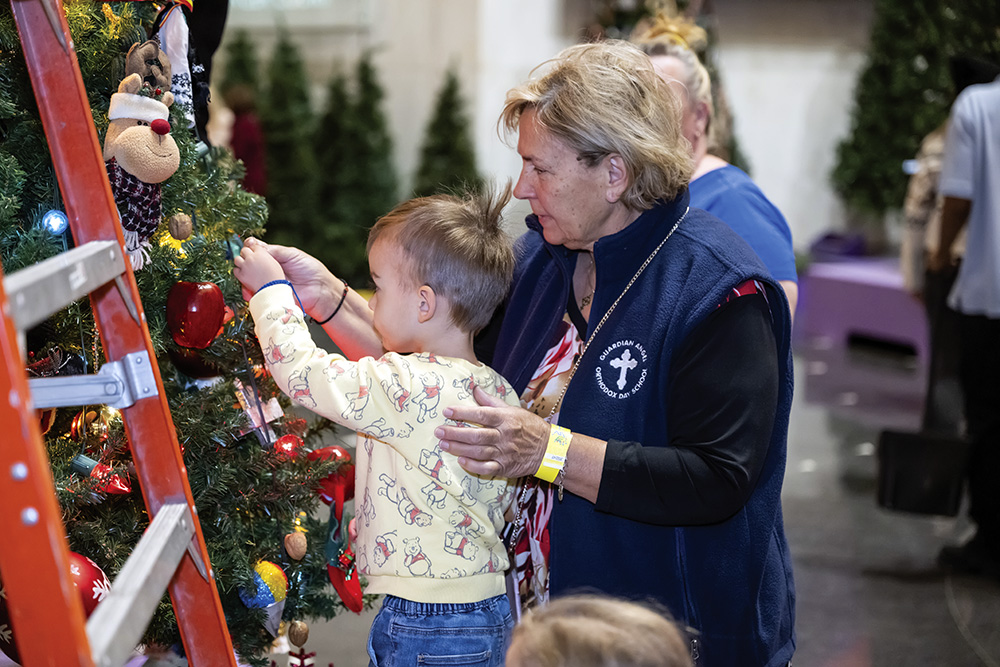Chicago Museum celebrates unity in diversity during the holiday season

By Anna Hughes
A Christmas tree is a universal symbol across the globe, representing faith, hope, and the season of joy and giving. The decorated evergreen branches are the traditional backdrop for some of life’s most precious moments, from Santa’s visits to family movies around the fire. It represents a common thread that weaves itself through every corner of the world – a sign that unifies over two billion people across the globe.
Christmas Around the World
Christmastime is full of traditions, but the concept of unity is the driving force behind one beloved holiday custom in Chicago: Christmas Around the World at the Griffin Museum of Science and Industry. What is now a beautiful display of over 50 trees began as just one back in 1942. The original tree was newly decorated every day for twelve days, a tribute to the twelve countries fighting alongside the United States during World War II. It symbolized hope and unity by showcasing a variety of holiday customs from each country, and it was a reminder that there was more unity than division among the Allies.
Over 80 years later, the exhibit has grown, but the message remains the same. Guests can go to the Griffin MSI and learn about dozens of cultures, countries, and customs by traveling just a few feet.
“I think that’s a good way to kind of open the entire world up with just one museum visiting,” Matt Porth, Griffin MSI deputy director of guest engagement, said. “We’re here to inspire, you know, the inventive genius in everyone. But I also think it’s good to just inspire people wanting to learn more about our fellow humans.”
Porth, who has been involved with Christmas Around the World since 2005, said that a museum should inspire people to pursue knowledge. He hopes that this exhibit will lead guests to seek additional education about people and cultures different from their own.
“It’s a great way to learn about other people, the things you may not have known, or things you always wanted to know,” Porth said. “And I think we all need to do that a lot more on a daily basis.”
A 10-Foot Task
It’s a tall task to put up and decorate a single Christmas tree. It takes a village to do the same for over 50. In order to ensure the exhibit is ready for its Nov. 16 opening, museum teams and dedicated volunteers began decorating on Nov. 1.
“We kind of have a rule: no trees up before Halloween,” Porth joked.
Each country’s tree has a group of volunteers that spend a few hours decorating. Many of these groups, either organizations or families, have been established for decades. For some families, it’s a tradition and responsibility that’s been passed down through generations. This volunteer system is a unique and key aspect of the authenticity of the Griffin MSI exhibit. Much of the decor comes from each tree’s country of origin and/or the decorators’ personal collections. Some years, trees are even dedicated to loved ones or former volunteers who have passed.
“There’s just really, really great stories,” Porth said. “The groups that put up the trees, whether they’re a family or with an organization, you know, they really understand and appreciate kind of like the little platform, the platform that they have. So they make the most out of it every year.”
Holiday Helpers
Elmhurst resident Paula Berger has been decorating the Bolivian tree at the exhibit for 20 years. Her father, who moved from Bolivia to the U.S. in 1965, was appointed Honorary Consul of Bolivia in the 1980s. He encouraged Berger to get involved with the Bolivian tree when they heard the museum didn’t have one. It’s become a tradition she carried on with her own family, and she hopes to pass it down to her two daughters one day.
“My goal for doing this tree every year is really to teach others about Bolivia because it’s a small country and to just show an appreciation for the different cultures and languages around the world,” Berger said. “That’s why I love the exhibit. Really, I go around, and I’m in awe of all the trees, but obviously, Bolivia is special to me because that’s where my parents were born.”
Berger decorates the tree with 150 handmade ornaments from Bolivia, including an assortment of llamas, totora boats, native cholita dolls, Zamponas (windpipe), sombreros, corn husk dolls, and more. She invites new volunteers to help each year to teach more people about the country she loves and its Christmas traditions. As a teacher, she prides herself in educating others, especially about celebrating each other’s cultures and unique differences.
Berger represents all of the dedicated volunteers who have a passion for sharing their background and/or home country with others. Thousands of guests visit each holiday season – some stare in awe as they see the stunning display of culture for the first time, while others excitedly return for their annual visit.
“It’s touching,” Porth said, about watching museum guests admire the trees. “It’s a great way for people to come to the museum and maybe reconnect with their heritage.”
Christmas Around the World opens on Nov. 16, 2024, with a grand tree lighting and runs through Jan. 5, 2025. In addition to the decorated trees, families can explore Holidays of Light, which showcases celebrations honoring light and enlightenment, including Chinese New Year, Diwali, Kwanzaa, Ramadan, Hanukkah, and more.

Christmas Around the World has been a Chicago holiday tradition for over 80 years. Photo courtesy of Griffin Museum of Science and Industry.

The tree decorating tradition is often passed down through generations. Photo by Heidi Peters

Shannon Keating, Margaret Foot, Paula Berger, and Karen Grane in front of the Bolivian tree
